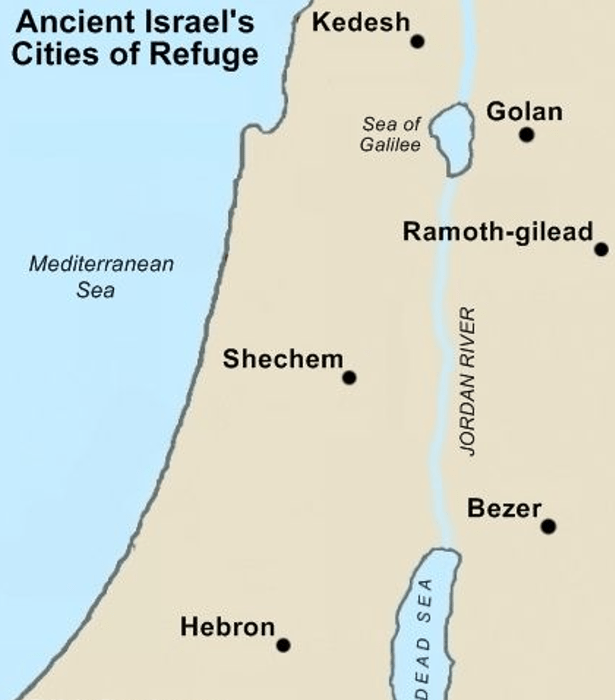
Put yourself in this situation: you are chopping wood in a field when your ax head flies off and accidentally kills someone. Now imagine that this is a tribal land where due process has not yet been established for situations like these. Instead of a court of law, the custom is that the family of the man you killed sends out avengers of blood to take your life, and the avenger is already on his way to find you.
You immediately tell a trusted friend what happened, and she gives you good news. She lets you know there is a refuge you can run to and be safe from the avenger of blood, but you must go there before the avenger finds you. At that moment, you would flee with all your might to that refuge.
The above scenario is not merely hypothetical. It was the reality in the early days of Israel living in the promised land. Joshua 20 gives a short explanation of the situation. To save those who unintentionally killed someone, the Lord tells Joshua to set apart six cities so the accidental manslayer could find refuge.
Here are a few interesting points about these cities.
1. These cities were set on hills with the way clearly marked so the fleeing person could find them when needed.
2. They were priestly cities. They were cities of the Tribe of Levi, who mediated between God and the people.
3. The six cities were spread throughout Israel, so no matter where you were, one was within reach.

4. Once inside the city, you were safe from the avenger of blood, but you had to stay in the city to remain safe.
5. Once the High Priest in Israel died, you were set free and could return to your hometown.
How they point to Jesus.
The cities of refuge are a picture of our salvation in Jesus. We have all sinned, and the wrath of God pursues us. It will eventually find us unless we run to Jesus for safety. This impending judgment is why scripture tells us to “flee the wrath to come.”
Like the cities, the way of salvation is marked throughout scripture, and Christ was lifted up for all to see. No matter where you are, Jesus is close at hand—as close as a prayer. He has already traversed the distance by coming to us.
Not only are we safe with our High Priest, but he has died, so we are entirely set free. The avenger of blood, the wrath of God, has no right to touch us because Christ bore our death on the cross.
Even the names of the cities have meanings that point us to Jesus.
Kedesh, meaning holy place or holiness, reminds us of finding the holiness we need by running to Christ, as elaborated in Philippians 3:8-9, where the believer’s righteousness is found through faith in Christ rather than through adherence to the law. This truth is explained in the doctrine of justification; our sins have been imputed to Christ, and his righteousness is counted as ours.
Shechem, which indicates shoulder or support, symbolizes the support found in Jesus, as illustrated in Matthew 11:28, where weary souls find rest in Him. John Bunyan’s Pilgrim’s Progress also paints a picture of this when Christian finds rest for his burden in the shadow of the cross. Christ governs us perfectly from there, as Isaiah declared, “The government shall be upon his shoulder.”
Hebron signifies fellowship, reflecting our fellowship with God through Christ as detailed in 1 John 1:3, which says, “Indeed our fellowship is with the Father and with his Son Jesus Christ.” This friendship is a stark contrast to our previous state of hostility with him due to our sinful hearts and minds (Romans 8:6-7).
Bezer, meaning stronghold or fortification, shows us a refuge for the helpless, drawing parallels to the Lord as a strong tower for the righteous and highlighting the security of God’s elect in Christ.
Ramoth-Gilead, meaning exalted and a refuge for the hopeless, underscores Christ’s exaltation to the Father’s right hand and our hope in Him.
Golan means separation, but not any separation—a separation that brings joy. This brings to mind the believer’s separation from guilt, sin, and our mortal bodies through justification, sanctification, and glorification. It also reminds us of our ultimate victory over our weaknesses, diseases, and even death through Christ’s saving work when we finally see him face to face.
If we have not done so, we must flee to Christ with all our might. Unlike the manslayer, our guilt was no accident. We deserve the wrath that hangs over us, but we find a perfect refuge and salvation in Jesus. Run to him today.
-D. Eaton

